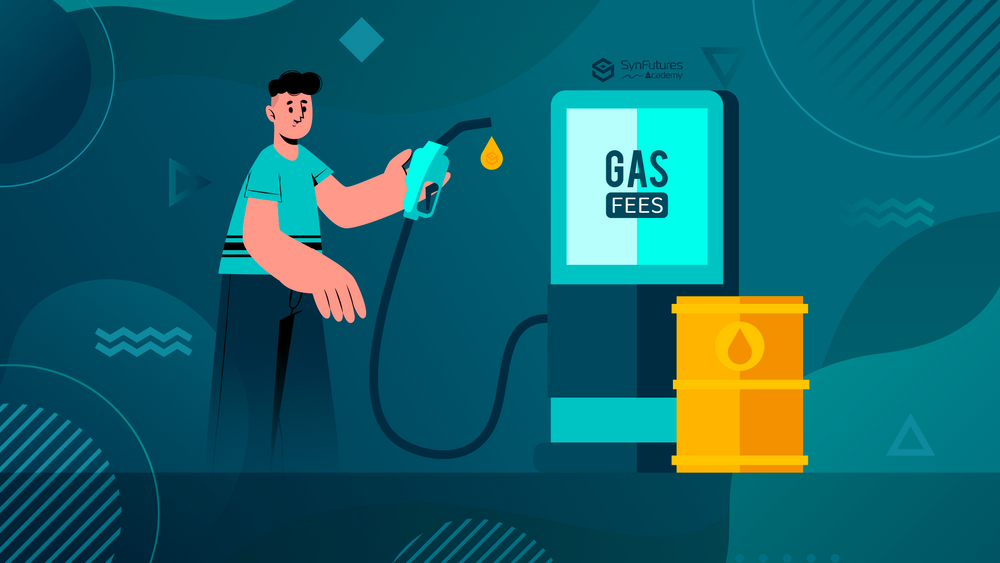What is the Role of Gas Fees in Ethereum Transactions?
If you’ve ever used Ethereum or heard about blockchain technology, you’ve probably come across the term gas fees. But what exactly are they, and why do they matter? Let’s break it down in simple terms.
Understanding Gas Fees
In the world of Ethereum, gas fees are the costs you pay for performing any action on the network, whether that’s sending ETH to someone, interacting with a smart contract, or minting a new NFT. Think of it like paying a toll on a highway — the busier the road, the higher the toll.
Ethereum, like any blockchain, is decentralized. This means that when you make a transaction, it’s not processed by a central authority (like a bank), but by thousands of individual computers (called nodes) around the world. These nodes verify and record your transaction, ensuring everything is secure and accurate.
However, this verification process requires computational resources. That’s where gas comes in. Gas represents the unit of computational effort required to process your transaction, and you pay for it in the form of ETH, Ethereum’s cryptocurrency.
Why Gas Fees Matter
Gas fees serve several important purposes in the Ethereum ecosystem:
Incentivizing Miners/Validators
Gas fees incentivize the miners or validators who process transactions. Without these fees, there would be no motivation for these individuals or entities to dedicate their time and resources to maintain the network. In simple terms, gas fees are how you “tip” the network for keeping your transaction secure and processed quickly.
Preventing Spam
Imagine if sending transactions on Ethereum were free. People could flood the network with millions of unnecessary or spam transactions, slowing everything down for legitimate users. By requiring gas fees, Ethereum ensures that users think twice before making a transaction, limiting spam and keeping the network efficient.
Managing Network Congestion
Gas fees fluctuate based on demand. When more people are using Ethereum, the network gets busier, and gas fees go up. This dynamic pricing system helps manage congestion because users can choose how much they are willing to pay. Higher fees incentivize miners to prioritize their transaction, which can be crucial when the network is crowded.
How Gas Fees Work
Gas fees are determined by two main factors:
Gas Price
This is how much you’re willing to pay per unit of gas. It’s usually measured in gwei, a smaller denomination of ETH. The higher the gas price you offer, the more attractive your transaction is to miners, meaning it gets processed faster.
Gas Limit
This is the maximum amount of gas you’re willing to use for your transaction. Complex actions, like interacting with smart contracts, require more gas, while simple transactions (like sending ETH) need less.
If your transaction doesn’t use up all the gas you’ve set aside, the unused portion is refunded. But if the gas limit is too low, your transaction could fail, and you might still end up paying for the effort that was used up to try and process it.
The Impact of Ethereum 2.0 and Layer 2 Solutions
Ethereum gas fees have been notoriously high, especially during times of network congestion. This led to a major upgrade called Ethereum 2.0, which transitioned the network from Proof of Work (PoW) to Proof of Stake (PoS), a more energy-efficient consensus mechanism. While this transition improves scalability, it doesn’t completely eliminate gas fees.
To further reduce gas fees, Layer 2 solutions like Optimism, Arbitrum, and Polygon have emerged. These protocols sit on top of Ethereum and process transactions more efficiently, offering users lower fees while still benefiting from Ethereum’s security.
Conclusion
Gas fees may seem like an annoying cost at first, but they’re essential to keeping Ethereum running smoothly. They incentivize the network’s validators, prevent spam, and help manage congestion. While solutions are being developed to make fees more affordable, understanding gas fees is key to navigating the Ethereum ecosystem successfully.
So, the next time you’re hit with a gas fee, just remember: you’re helping to keep the whole system secure, decentralized, and running efficiently!

